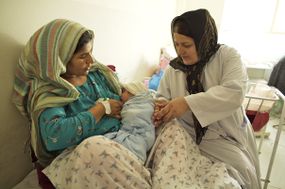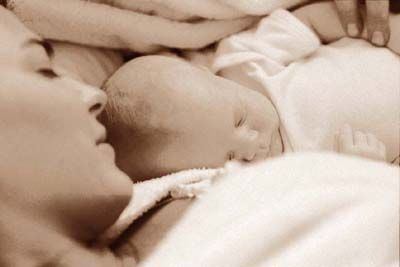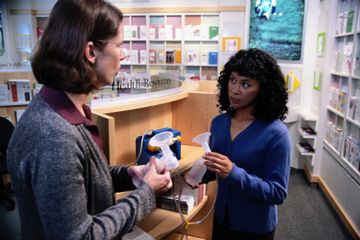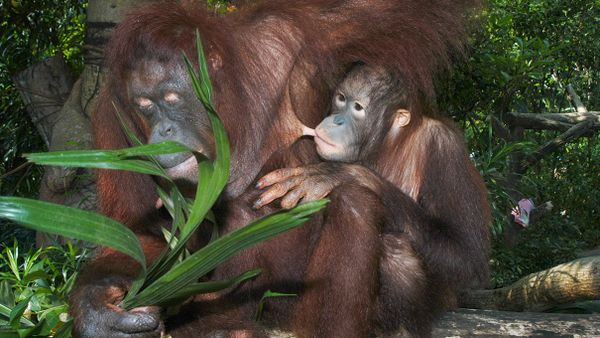
Human breast milk is impressive stuff. It's a mind-bogglingly complex cocktail of sugars, proteins and fats, the ratios of which are always changing along with a growing baby's nutritional needs. Doctors and breastfeeding advocates are quick to remind us that mother's milk gives a baby's immune system an infection-fighting boost, but the truth is, science has yet to determine precisely why that is — or how we might use the properties of human milk to fight infectious bacteria.
Until recently, the chemists who study the immune-supporting properties of human milk have primarily pointed their microscopes to the proteins therein. A Vanderbilt University team published new research in the journal ACS Infectious Diseases — and presented it Aug. 20, 2017, at the annual meeting of the American Chemical Society in Washington, D.C. — suggesting that carbohydrates in breast milk not only possess their own suite of antibacterial properties, but also that they might boost the bacterial-killing abilities of the milk proteins we know more about.
Advertisement

"This is the first example of generalized, antimicrobial activity on the part of the carbohydrates in human milk," said study director Steven Townsend of the Vanderbilt Department of Chemistry, in a press release. "One of the remarkable properties of these compounds is that they are clearly non-toxic, unlike most antibiotics."
The researchers focused their study on bacteria called Group B Strep (GBS), which are commonly found in pregnant women and can be problematic in newborns if passed to them by their mothers. (Most babies don't become infected with GBS.) A decade ago, a study found that GBS could be passed from mother to baby through breast milk, so the research team set to finding out whether human milk supports or prevents GBS colonization. Instead of looking at proteins, they focused on milk sugars, which are more difficult to isolate and study.
The researchers collected milk sugars called oligosaccharides from donor milk samples, added them to GBS cultures and examined them under a microscope. They found that in some of the milk samples, the oligosaccharides broke down the biofilm the bacteria made to protect itself, but didn't kill the bacteria itself, while in others, the bacteria was killed but the biofilm remained intact. However, a few of the milk samples both tore down the biofilm and killed the strep bacteria in the culture.
The researchers also found the mixture of milk sugars and antimicrobial peptides from human spit can work together to boost other antimicrobial agents contained in breast milk.
"Our results show that these sugars have a one-two punch," said Townsend. "First, they sensitize the target bacteria and then they kill them. Biologist sometimes call this 'synthetic lethality' and there is a major push to develop new antimicrobial drugs with this capability."
Check out this University of Vanderbilt video for more on the study's methods and findings:
Advertisement


